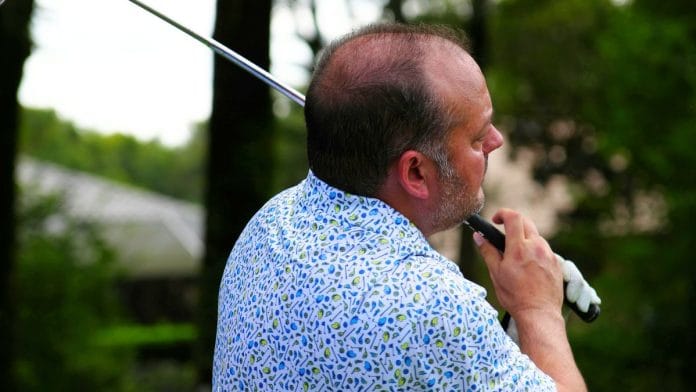One of the biggest questions we’re always trying to address is—are we doing everything to care for our hair? Are we doing too little? Are we doing too much? Why do I have so much hair fall?
The health of your hair is intricately linked to the nourishment it receives from your diet. Stress and smoke—whether from smoking, passive smoking, or pollution—contribute significantly to hair loss. Smog, particularly prevalent in metropolitan areas, exacerbates the problem.
Before diving into the remedies and treatments for hair fall, it’s essential to understand the common causes of hair loss:
Genetics: Androgenetic alopecia known as hereditary hair loss, is the most common cause.
Nutritional deficiencies: A diet lacking essential vitamins such as Vitamins D, H (Biotin), and other minerals can lead to major deficiencies that affect hair health.
Internal causes: Cancers, autoimmune disorders and severe diabetes mellitus can also contribute to hair loss.
Pollution: Environmental pollutants can cause serious damage to the scalp and hair follicles over time.
Hormonal imbalances: Conditions like thyroid disorders and PCOS can contribute to hair loss.
A combined approach
In my 13 years of expertise as a dermatologist, I always reiterated the hair care industry needs a holistic approach that addresses both internal and external factors through oral and topical applications rather than relying on a single product that only superficially addresses hair loss. A complex issue like hair loss requires a comprehensive and customised solution. By integrating these two sciences, you can tackle both health and hair loss with a unified approach.
Given the intricate nature of hair loss, relying solely on either natural remedies or clinical treatments may not be sufficient. Instead, a combination of both is often the most effective strategy. This combination leverages the strengths of each method, offering a comprehensive solution to hair loss.
Effective natural remedies
Over the years, certain natural remedies have proven to be effective in combating hair loss. Here are some notable ones:
Castor and rosemary oil with camphor: This mixture has been used successfully for many years. Castor oil, known for its nourishing properties, combined with rosemary oil, which stimulates hair growth, and a bit of crushed camphor, can significantly reduce hair fall. Applying this mixture as a hair pack, followed by steaming, can enhance its effectiveness.
Capsicum and onion juice mixture: This combination can be particularly beneficial for those suffering from alopecia areata, an autoimmune disorder that causes circular patches of hair loss. While this mixture acts as an irritant to stimulate hair growth, it should be used alongside allopathic treatments for optimal results. This is because alopecia areata requires an inside-out approach by starting with addressing issues within the blood.
The limitations of natural remedies
Though natural remedies for hair loss offer numerous benefits such as minimal side effects and cost-effectiveness, they also have several limitations:
- Lack of scientific evidence: While anecdotal evidence and traditional knowledge suggest benefits, the absence of clinical trials makes it difficult to ascertain their true effectiveness.
- Variability in results: Natural remedies can yield inconsistent results. They tend to work for only about 50 per cent of people and are generally more effective when used in conjunction with clinical treatments, particularly for those living in metropolitan areas.
- Limited efficacy for severe hair loss: For individuals with advanced hair loss or conditions like androgenetic alopecia, natural remedies may not be sufficient. Severe cases often require more potent treatments available through clinical methods.
Effective clinical treatments
It’s essential to correct internal disorders first for effective hair loss treatment.
Hair growth occurs in a cyclical pattern involving five stages: Anagen (growth phase), catagen (transitional phase), telogen (resting phase), exogen (shedding phase), kenogen (latency phase). Additionally, it’s important to distinguish between two types of hair loss: acute and chronic telogen effluvium. The former lasts less than three months, while the latter persists for more.
Remember that losing around 100 hairs a day is considered normal. Once you feel like you’re crossing that mark on a daily basis, set up a consultation with your dermatologist.
If you are replacing the vitamins in your body orally, then you should be aware of the above cycles of your hair growth/loss phase, as it can take three to six months to see improvement. This delay may coincide with a phase where hair is falling out, potentially leading to the unnecessary intake of extra vitamins. For severe hair fall, I suggest injectable vitamins for quicker results.
Clinical treatments have advanced significantly, offering various solutions tailored to individual needs. Some of them are listed below.
PRP (platelet-rich plasma) therapy: This involves injecting platelet-rich plasma, derived from the patient’s blood, into the scalp and has been known to be great for hair growth and density.
Laser therapy: Low-level laser therapy (LLLT) can stimulate hair follicles and promote hair growth. This is a popular non-invasive treatment due to its effectiveness and minimal side effects.
Hair transplant: This surgical procedure involves moving hair follicles from one part of the body to the balding areas. Hair transplants have a high success rate and offer a permanent solution to hair loss.
Always consult your trusted dermatologist before undertaking any skin treatment, natural or clinical, major or minor. The most effective approach to treating hair loss involves a combination of natural remedies and clinical treatments.
Dr Deepali Bhardwaj is a Consultant Dermatologist, Max Hospital, Saket. She is also an anti-allergy specialist, laser surgeon and internationally trained aesthetician. She tweets @dermatdoc. Views are personal.
(Edited by Humra Laeeq)






